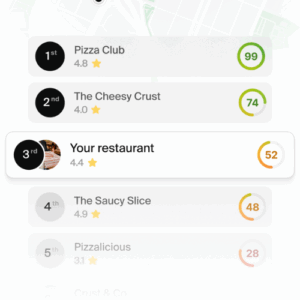Word of mouth in the marketing context is when a consumer’s interest in a company’s product or service is reflected in their daily dialogues. Essentially, it is free advertising triggered by customers’ experiences, and usually something that goes beyond what they expected.
Word-of-mouth marketing can be promoted through various advertising activities established by companies or by having opportunities to promote consumer-to-consumer and consumer-to-marketer communications.

1. Understanding the meaning in marketing
Word-of-mouth marketing differs from natural word-of-mouth referrals to a company’s products and services in the way that it can be the result of a company’s promotion, encouragement or other influence, also known as “seeding.”
When a diner has a wonderful time at a restaurant because their expectations were exceeded and then tweets about it, or when someone had a great experience using a product in a new way and tells everyone they know about it
Encouragement from a company can take one of several forms. The best way is to give them a reason to speak up, such as exceeding expectations or providing internal skills or information about a product.
Read more in: What is customer satisfaction? 5 reasons why it is important
2. Benefits of word-of-mouth marketing
88% of people worldwide said they trust recommendations from friends and family (earned media) over any other form of advertising. This shows how effective word-of-mouth marketing can be.
Consumers are more emotionally attached to a company when they feel the company listens to them. That’s why many companies will have sales representatives discuss their products and services with consumers personally or through a telephone feedback line. This type of interaction, as well as promotional events, can stimulate conversations about a company’s product.
3. What are some real examples?
Word-of-mouth marketing includes marketing tactics used by companies to encourage consumers to talk about their levels of satisfaction with the company’s service or product. These strategies include brand loyalty programs, which reward customers for repeat business and give them platforms to provide user feedback; giveaways; contests; and sponsored influencers.
4. Digital version of word-of-mouth marketing
Digital word-of-mouth marketing uses technology, particularly the Internet, to facilitate word-of-mouth exchanges. Review forums, Google reviews, social networking sites and blogs are popular digital platforms that consumers use to share their experiences, good and bad, and these shared testimonials significantly influence consumers’ purchasing decisions.
5. Importance of word-of-mouth marketing
Word-of-mouth marketing is important as it is an effective way to increase sales, promote products and services, increase brand recognition and build customer loyalty. Many companies employ strategies that encourage customers to recommend their services and/or products and share positive experiences. Essentially, companies create the spark that ignites a firestorm of conversation among consumers, and since studies show that most people rely on the advice of family and friends, focusing on word-of-mouth marketing can be more beneficial and cost-effective than other forms of marketing.
6. Strategies
WOM marketing is great for companies because it generates business without incurring additional marketing costs. However, companies can deliberately contribute to word-of-mouth marketing efforts.
WOM marketing is generally experienced during dinner parties, text messages, and casual encounters among friends and family. It can also be set up through buzz, viral media, blogs and social media marketing.
Remember, to improve your online presence and stand out on Google and Google Maps, having a review and customer experience management strategy can make all the difference. You can count on RAY, a comprehensive solution that can help you improve your Google reviews, rank high in search results and provide an exceptional customer experience.
7. Keep learning with these articles
Hopefully, by now you have a solid understanding of word-of-mouth marketing. You can continue to read more articles that will help your brand or business in our Blog.


